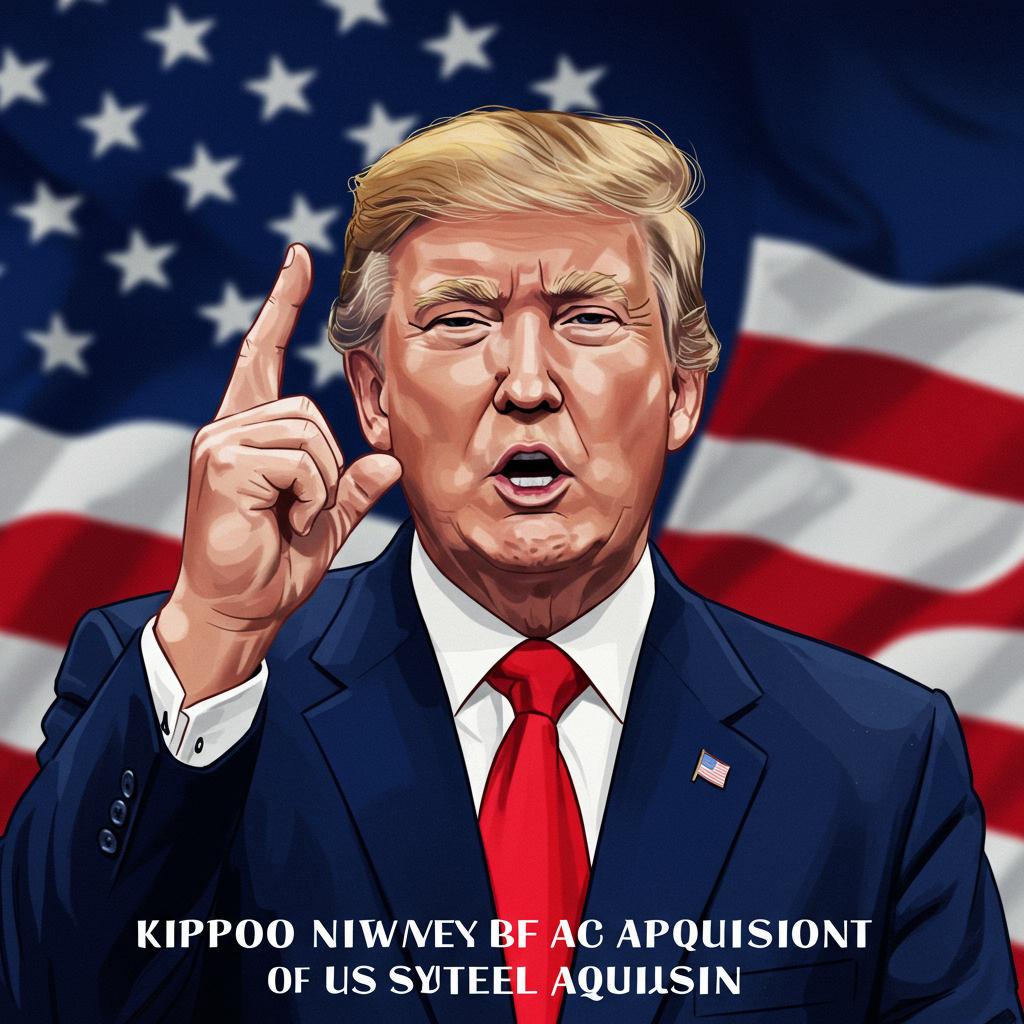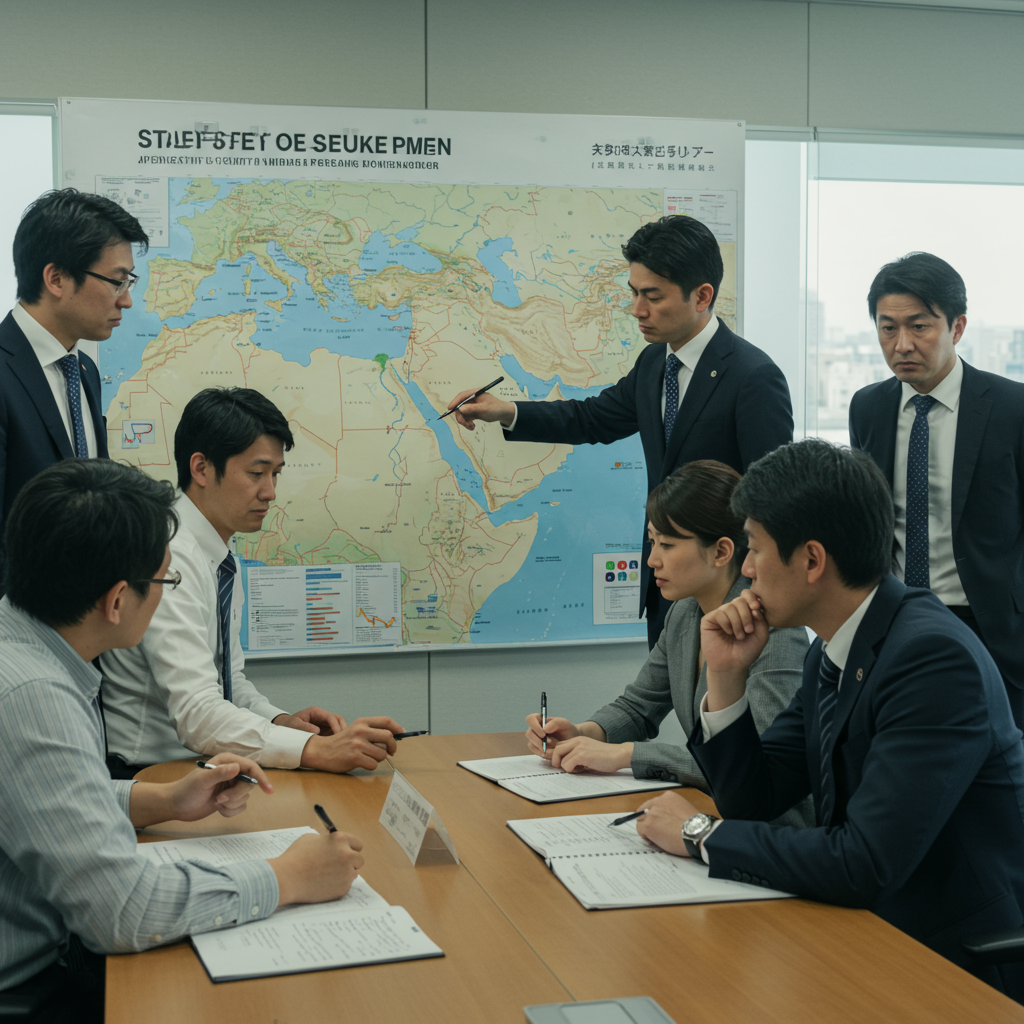Major Steel Deal Approved: Trump Clears Path for Nippon Steel to Acquire US Steel
After over 18 months of intense scrutiny and political wrangling, former U.S. President Donald Trump has formally approved Nippon Steel’s $14.9 billion bid to acquire U.S. Steel. The significant transaction, which faced hurdles including union opposition and multiple national security reviews, received the green light contingent upon a crucial agreement signed by the companies with the U.S. Treasury Department.
The companies announced they had signed this agreement, effectively fulfilling the conditions laid out in Trump’s executive order and paving the way for the merger to proceed. In a joint statement, Nippon Steel and U.S. Steel thanked the former president, stating, “We look forward to putting our commitments into action to make American steelmaking and manufacturing great again.”
Key Commitments and Substantial Investment
Beyond the $14.9 billion purchase price for a 100% stake in U.S. Steel, Nippon Steel has committed to significant future investments in American steelmaking capabilities.
The agreement includes:
$11 billion in new investments by 2028: This includes commitments to greenfield projects.
An additional $3 billion investment post-2028: This funding is earmarked for building a new steel mill.
These planned investments bring the total potential value associated with the deal to approximately $28 billion, according to some reports, encompassing both the acquisition cost and future capital injection.
Addressing National Security Concerns with “Unprecedented Control”
A pivotal element enabling the approval is the inclusion of measures designed to safeguard U.S. national security interests. A key mechanism involves issuing a “golden share” to the U.S. government. While not representing an equity stake, this golden share is intended to grant the U.S. government veto power over certain critical decisions made by the merged entity.
The agreement reportedly includes what are described as “unprecedented U.S. control measures,” such as:
Establishing a U.S.-majority board of directors.
Requiring certain leadership positions within the company to be held by American citizens.
Maintaining U.S. Steel’s headquarters in Pittsburgh, Pennsylvania.
Protecting existing plant operations and trade interests.
- Crucially, a commitment to avoid importing steel slabs that would compete with U.S. blast furnaces.
- www.japantimes.co.jp
- www.newsbytesapp.com
- timesofindia.indiatimes.com
While the specific details of the national security agreement remain confidential, U.S. officials expressed confidence that these provisions adequately mitigate risks associated with foreign ownership of a strategic domestic resource.
Strategic Significance and Market Impact
The acquisition is set to reshape the global steel landscape, creating the world’s second-largest steelmaker and a significant domestic competitor to firms like Nucor Corp.
For Nippon Steel, acquiring U.S. Steel provides a critical foothold in the lucrative U.S. market, allowing the company to capitalize on anticipated growth driven by infrastructure projects. It also enables Nippon Steel, a specialist in high-grade steel, to leverage its expertise in areas crucial for American infrastructure, such as enhancing struggling electric grids, where domestic production has reportedly lagged. The deal also allows Nippon Steel to avoid substantial breakup fees it would have incurred had the transaction failed to gain approval.
For U.S. Steel, the acquisition promises much-needed critical investment to modernize its operations and enhance its competitive position.
A Tumultuous Journey to Approval
The path to this approval was anything but smooth. Announced in December 2023, the bid immediately faced strong opposition, notably from the powerful United Steelworkers union. The political climate, particularly during a presidential election campaign, amplified the scrutiny. Both then-President Joe Biden and former President Donald Trump initially expressed opposition, vying for favor among voters in key steel-producing states like Pennsylvania.
Biden’s administration had previously blocked the deal on national security grounds shortly before leaving office, leading to legal challenges from the companies. The re-opening of a national security review under the Trump administration provided a new opportunity for the steelmakers. Despite initially floating different possibilities, including a minority stake or simply an “investment,” Trump ultimately endorsed the acquisition under the stipulated security conditions.
Reactions to the approval have been varied. While the Japanese government welcomed the decision, seeing it as bolstering innovation and strengthening ties, some Nippon Steel investors have voiced concerns about the short-term financial pressure stemming from the scale of the required additional investments. Domestically, while national union leadership remained opposed, reports indicated some local union leaders had expressed support for the deal.
What Happens Next?
While Trump’s approval is a major step, the deal is not fully finalized. The execution of the national security agreement must still be approved by the Treasury Department and the Committee on Foreign Investment in the United States (CFIUS). Additionally, the transaction is subject to review by the Department of Justice. These remaining steps are expected to be completed promptly, allowing the partnership to move towards finalization. Following the announcement, U.S. Steel shares saw a notable increase in after-hours trading, rising close to Nippon Steel’s original bid price.



